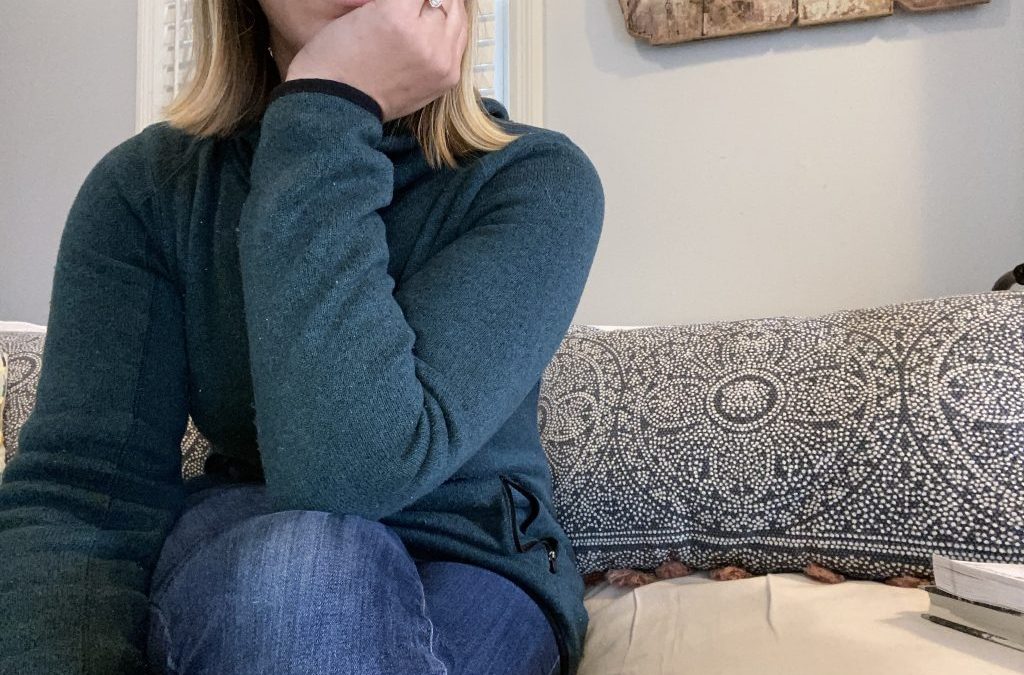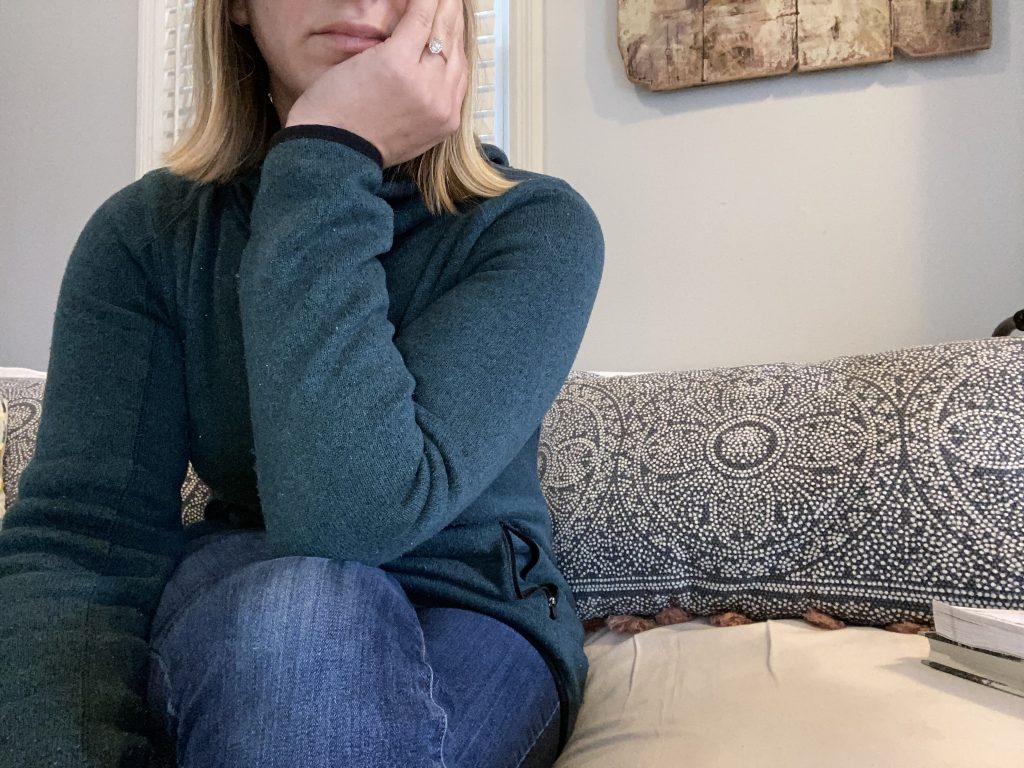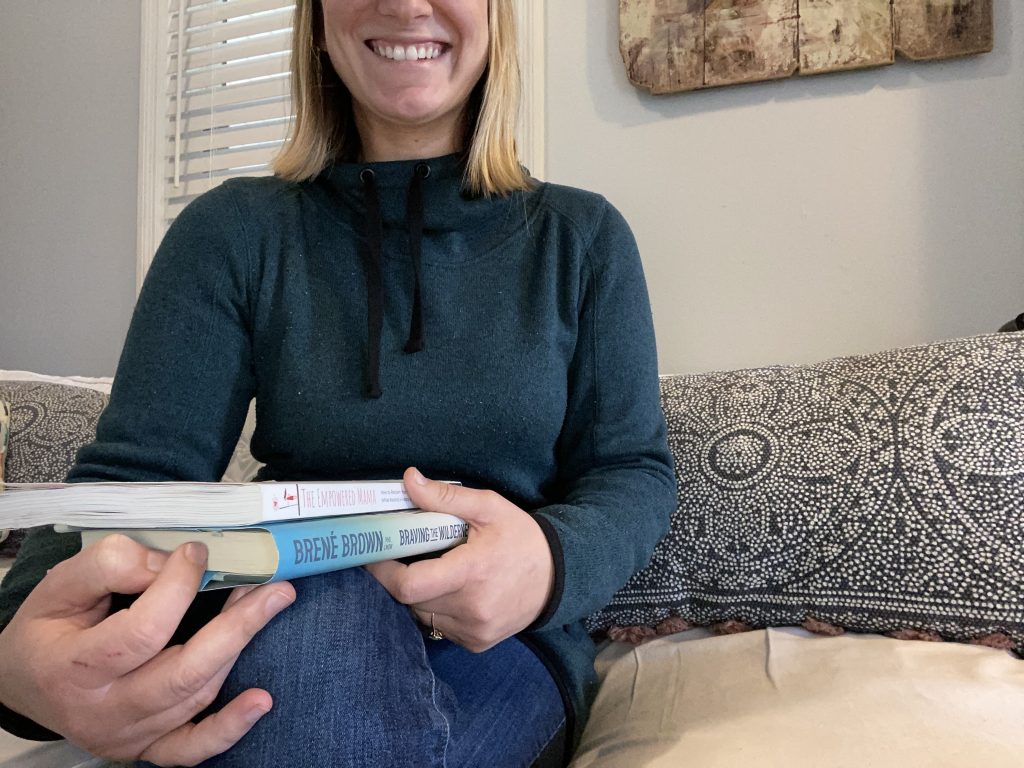
I feel like a horrible foster parent today honestly. I feel like I’ve been fighting and fighting against everything within me that says to give up, give in, throw in the towel. Maybe I’m not cut out for this life. Maybe there are too many things within me that make me unfit to do this well. Maybe I’m too weak to be strong for kids who need so much. Parenting is hard. Foster care is hard. Sometimes it just feels like too much hard and not enough pay-off. Today I am in the middle of that hard. I don’t see the pay-off coming. I don’t see the light at the end of the tunnel. I’m sitting in the dark.

But I’ve felt like this before and we’ve always kept going. The light comes back eventually; dawn is inevitable. I see it a little more clearly as time fades the rush of adrenaline or anger or fear. I feel the ache of “not being enough” a little more acutely. It’s true that I’m flawed. I’m imperfect. I make bad choices. But good foster parents are present, not perfect. I’m choosing to show up. When I make a mistake, I apologize. When I make a bad choice, I try to correct it. I don’t always get it right, not even on the second try. But I try again.
So how do you go on when you’re in the middle of a hard season? When you feel like you’re sitting in the darkness waiting for someone to switch on the light? All you can see is the hard situation right in front of you? Well, I’ve found a few things to be true in my time fostering. There is no overnight cure to hardships. Sometimes sitting in the hard, wrestling with it, teaches you lessons you’ll be grateful for later (sometimes much later). It’s about consistently prioritizing your health and well-being. You cannot pour from an empty cup.
Here are my five simplified tips for holding on to hope when you are in a hard season of fostering:
1. Find one person you trust
It takes incredible courage to be vulnerable. If you have one person you can be really honest with about all your mixed feelings about foster care, you have someone that can help carry the burdens. That someone may be a spouse, a friend, a loved one. It may be a foster parent who understands your experience, but it may be someone removed from the world of foster care so that they can give you a different perspective. Give yourself permission to not only show the highlight reel of your life, a shiny version of reality. Give yourself permission and trust that you can share your true self and true emotions- even if they change.
Interested in learning more about vulnerability? Watch Brene Brown’s The Call to Courage on Netflix. I love that she says, “vulnerability doesn’t require you to change who you are, it requires you to be who you are.”
2. Go to counseling
Counseling is one of the greatest gifts you can give yourself and give the people you love. When you are caring for your mental health, you are a happier, more whole version of yourself. You are worth the investment of time and energy to better understand yourself and the complex emotions of the complex life you live. Foster care is hard work. Dealing with trauma and drama of the tiny humans in your home can become exhausting. Give yourself space to process it with a professional.
Interested in reading more about the power of talking to a counselor? Read Lori Gottlieb’s Maybe You Should Talk to Someone, a heartfelt, funny, and inspiring book about a therapist, her therapist, and what we learn about ourselves when we have the space to talk.
3. Invest in true self-care
I love a quick trip to Target or grabbing my favorite drink on an extra stressful day. These are things I enjoy and they fill me up, but only momentarily. True self-care is the work of continually investing in things that make you your best self. They are not quick-fix, surface level experiences like a massage or a getting your nails done. Although those things are also awesome! True self-care probably looks different for me than it does for you. It is different if you are an introvert or an extrovert, Type A or Type B. For me, it is reading great fiction books, having time away with my husband on a regular basis, talking to my mom on the phone, spending time outside in nature. I can always tell when I haven’t done these things consistently for awhile because I feel drained.
I have also loved journaling through The Empowered Mama, a practical, interactive workbook- although I have not been successful in doing it consistently. It feels less like a self-help book and more like a self-exploration exercise.
4. Don’t pretend it isn’t hard
Pretending foster care isn’t hard is ignoring reality. There are hard things about all parts of life. That doesn’t mean that foster care isn’t worth it. Love does hard things. Over and over again, without fail. I’ve been plagued by the fear that if I really show how hard foster care is on some days that no one else would ever want to become a foster parent. And we desperately need more foster parents. Or if I’m honest about how I’m feeling on certain days, I will have to defend the reason we keep fostering. Being honest with the people I care about and sharing how hard foster care is some days (and also how great and joyous other days are) is an act of trust and respect. I am giving them my true self and not just my shiny, put-together best self. Relationships are built on mutual sharing and vulnerability.
Vulnerability is the birthplace of connection and the path to the feeling of worthiness. If it doesn’t feel vulnerable, the sharing is probably not constructive”
Brene Brown
5. Take a break
I will be honest and say that I need to be better about taking my own advice on this one. When you need a break, take a break. If that is getting respite for a weekend, do it. If it is going on vacation without any kids, do it. If that is not accepting a new placement, so be it. If that means closing your home for a short time or forever, that’s fine too. You have to care for yourself and your family in a way that honors your humanity. You are a human being that has needs. Sometimes you need to take a break. It is so hard for me to say “no” to things, but it is especially hard for me to say “no” to taking a placement because I know there is a child that needs a home. The best advice I’ve ever gotten was that a “no” now means that you get to say a better “yes” (or at least a different “yes”) to something else later.
I love how Shauna Niequist expertly lays it out,
But you can’t have yes without no. Another way to say it: if you’re not careful with your yeses, you start to say no to some very important things without even realizing it. In my rampant yes-yes-yes-ing, I said no, without intending to, to rest, to peace, to groundedness, to listening, to deep and slow connection, built over years instead of moments”
– Present Over Perfect: Leaving Behind Frantic for a Simpler, More Soulful Way of Living

Just writing out my feelings and my encouragements for how to find your way out of the darkness of a hard season in fostering makes me feel just a little bit better. I still feel a tug of heaviness on my heart as I think about this week. But I know that I’m not ready to give up. Maybe make more intentional time and space for self-care, maybe take a break in the near future, but not give up. For today, I’m going to apologize for the ways I’ve fallen short, accept that I’m human, and wrestle with the hard.



